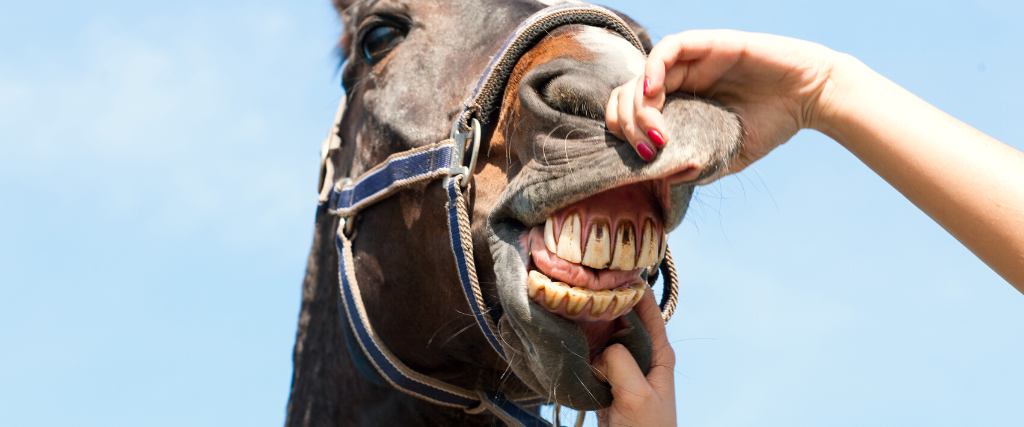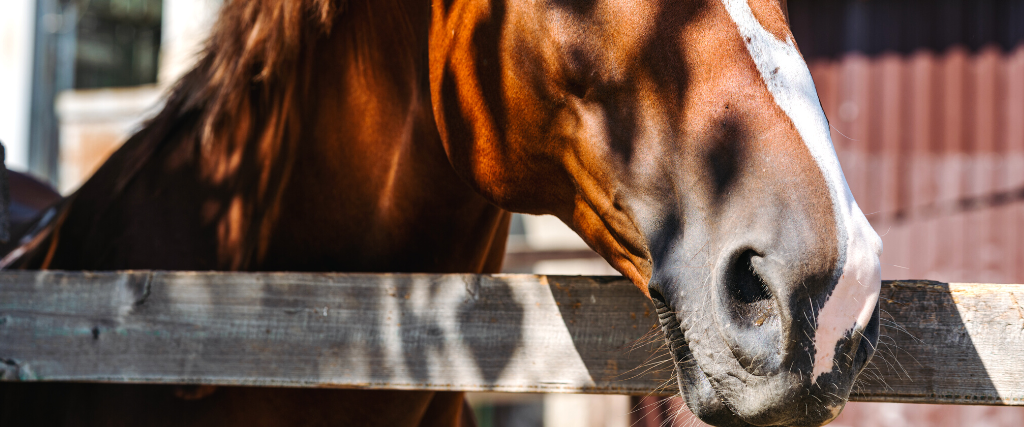Equine dental care is an integral part of maintaining the health and well-being of horses. As veterinarians, it's our duty to ensure our patients receive the highest quality of dental care possible. Equine dentistry encompasses many different aspects, from routine preventative care to more complex dental procedures. The goal is always to maintain optimum health and well-being for our equine patients.
Routine preventative care consists of regular check-ups and cleanings, as well as monitoring for any signs of dental diseases. Without regular maintenance, horses can develop painful conditions such as periodontal disease or overgrown teeth. In order to avoid this, it's vital that your horse receives appropriate dental care throughout their life. In this blog post, we'll be discussing what equine dental care is and why it's so important. Read on to learn more.
What Is Equine Dental Care And Why Is It Important?
Equine dental care is the practice of providing dental services to horses in order to improve and maintain their dental health. Horses have teeth that continue to grow throughout their lifetime, similar to rodents and beavers. Equine dental care includes dental floating, which involves filing down the sharp edges of a horse's teeth so they do not injure their cheeks while chewing and swallowing. Additionally, dental scaling and cleaning may be necessary, just as it is for dogs and cats.
A dental checkup is also important to identify any issues with dental alignment or to repair damage caused by malocclusions. Regular equine dental care also helps prevent impaction colic, one of the most common causes of death in horses due to sudden intestinal blockages caused by large feed particles that cannot be ground down enough for proper digestion. Ultimately, regular dental care from a qualified veterinarian is essential for any horse owner who wants to give their equine friend a comfortable and healthy life without risk of dental-related illnesses.

What Are The Different Types Of Dental Disease In Horses And How Do They Affect Them?
Properly caring for horses' teeth is an essential part of maintaining their overall health and preventing dental diseases. While horses naturally have relatively strong, healthy teeth, they are still susceptible to a variety of different conditions that can develop over time due to poor care or incorrect nutrition.
Dental disease in horses can range from yellowing of enamel caused by plaque or calcium deficiency to points and spurs caused by abrasive diets. In addition, when food is trapped in crevices between the molars it results in food-impaction disease which leads to weakness and pain in the mouth. These issues can cause abnormal eating habits leading to difficulty chewing grasses or hay, decreased feed intake, and loss of body weight due to malnourishment.
Prolonged dental issues not only affect a horse's eating patterns but also its performance levels, with significant lameness as well as respiratory problems potentially developing as a result. As such, regular checks should be done to ensure your horse's teeth are healthy and any emerging dental issues are caught early on so they may be successfully resolved. When combined with proper nutrition and regular brushing and filing when needed, this will help keep your horse healthy and performing at its very best.
How Can You Tell If Your Horse Has Dental Disease And What Should You Do About It?
If you own a horse, it's important to pay attention to its dental health. Unfortunately, dental disease can be difficult to detect since many of the signs are hard to notice. The most obvious sign is an abnormal bite alignment, which can cause difficulty when eating or result in small bits of food dropping from your horse's mouth during/after feeding.
Other signs of equine dental disease include:
- Breathing difficulty
- Reluctance to chew
- Foul-smelling breath
- Facial swelling
- Weight loss
If you suspect that your horse has dental disease, it's important to have them examined by a professional veterinarian. Your vet will conduct an oral examination of your horse's teeth and may even take X-rays if needed. Treatment typically involves filing down sharp edges on the horse's teeth as well as removing any diseased enamel or damaged teeth. If left untreated, dental disease can lead to painful infections and other serious health complications in horses so getting a professional opinion early on could help save your horse a lot of pain and suffering in the long run.

How To Care For Your Horse's Teeth At Home Between Appointments
Keeping your horse's teeth healthy is one of the most important aspects of responsible horse ownership. Fortunately, there are some steps you can take at home in between professional dental appointments to help ensure that your horse always has healthy teeth. First, make sure to provide your horse with plenty of hay, which will scrape away plaque buildup on the teeth surfaces while also providing essential nutrients. Additionally, feed your horse treats like carrots and apples, as these will clean their teeth and gums and stimulate salivation to aid in digestion.
You still should establish a regular routine for having your horse's teeth professionally examined and cleaned. Keeping up with proper dental care is essential in maintaining good general health over the life course of all horses. However, taking these small measures at home will help save time (and money) in the long run by lowering the risk of needing invasive treatment down the line.
Closing Thoughts
Equine dental disease is a common problem that can have a big impact on your horse's health. By learning to recognize the signs of dental disease and taking steps to prevent it, you can keep your horse healthy and happy. Regular dental check-ups are an important part of preventive care, but you can also do a lot to care for your horse's teeth at home. Start by paying attention to how your horse eats and drinks, and be sure to examine their teeth regularly. With proper care, you can help your horse avoid the pain and problems associated with dental disease. If your horse is due for professional dental care, please reach out to us today. We're more than happy to help!
